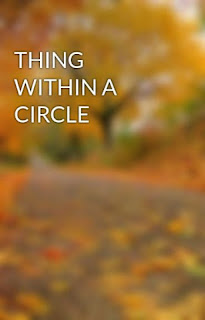MORLAND WRITING SCHOLARSHIP
2015 MORLAND WRITING SCHOLARSHIPS: Notice to Scholarship Candidates
It can be difficult for writers, before they become established, to write and to earn a living outside writing at the same time. To help fill this need the MMF aims to each year award three Morland Writing Scholarships for fiction and one Morland Scholarship for non-fiction. The Scholarships are open to anyone writing in the English language who was born in Africa or both of whose parents were born in Africa.
Grant;
Scholars writing fiction will receive a grant of £18,000, paid over the course of twelve months. Scholars writing non-fiction will receive a grant of £27,000, paid over the course of eighteen months.
Scholar’s Undertaking;
In return for this Scholars are asked to pay to the MMF 20% of whatever they subsequently receive from what they write during the period of their Scholarship. These funds will be used to support other promising writers. The 20% return obligation should be considered a debt of honour rather than a legally binding obligation.
Qualifications;
To qualify for the Scholarship a candidate must submit a piece of published work, or an excerpt from a piece of published work (written in English), of between two and five thousand words to be evaluated by a panel of readers and judges set up by the MMF. The Scholarships will be awarded based on these submissions although the Foundation may also wish to question certain candidates or ask for other work. The work submitted will be judged purely on literary merit. It is not the purpose of the Scholarships to support academic or scientific research, or works of special interest such as religious or political writings. Submissions or proposals of this nature do not qualify.
The Judges
Our panel consists of:
Ellah Allfrey, from Zimbabwe, is an independent editor, critic and broadcaster. She was previously Deputy Editor of Granta magazine and has worked at Jonathan Cape, Random House and Penguin. She sits on the board of the Writers’ Centre, Norwich, and is Deputy Chair of the Council of the Caine Prize. Ms Allfrey is the Chair of the Judges Panel.
Olufemi Terry, born in Sierra Leone, was the winner of the 2010 Caine Prize for African Literature with his story, Stick-fighting Days.
Petina Gappah, from Zimbabwe, is joining the panel this year to replace Nadifa Mohammed who is working full-time on a new book. Petina's 2009 book, An Elegy for Easterly, was widely acclaimed. Her new novel, The Book of Memory, is a key part of Faber’s list for summer 2015.
Mentoring:
Each of the winners will be offered the opportunity to be mentored by an established author or publisher who will give help when sought on the progress of their book and comments as to how it succeeds in meeting its objectives. Participation in this scheme will be voluntary. It is not the intention of the MMF to act as editor or a publisher. Scholars will need to find their own agents and publishers although it is to be hoped that over the years the award of a Morland Scholarship will come to be recognised as an incubator of talent.
Proposed Work
The candidates should submit a brief description of the work they intend to write (300 - 500 words). It should be a new work, not a work in progress. The proposed work must be in English, as must all submissions. Please also tell us in 200 - 300 words something about yourself and your background. Anything in your background suggesting that you have the ability and discipline to write a full-length book will be useful. Proposed works can be on any subject though the judges will show preference to works which relate to Africa. Academic work, medical and scientific research, and works on religious subjects will not be considered for an award.
Fiction or Non-Fiction
The Foundation welcomes both fiction and non-fiction proposals. We are aware that non-fiction Scholars may need extra time for research, so the Foundation caters for a Scholarship period six months longer than for fiction writers. We are happy to grant a few months’ grace before the Scholarship payments start and the 10,000-word monthly requirement goes into effect to permit a non-fiction Scholar, in particular, to do research before he or she starts writing.
The Trustees are actively giving consideration to what they might do to promote non-fiction in Africa. We have not yet found the answer. Thoughts welcome.
Poetry? Plays? Film-Scripts?
We love them all, but No, neither as submissions of completed work nor as proposals for books.
Scholarship Requirement
The only condition imposed on the Scholars during the year of their Scholarship is that they must write. They will be asked to submit by e-mail at least 10,000 new words every month until they have finished their book. The Scholarship will terminate if a Scholar fails to submit the required work on time unless prior authorisation has been received. The Scholarship is intended for writers who want to write a full-length book of 80,000 words or more. If the first draft of the book is completed before the year is up, payments will continue while the Scholar edits and refines their work.
Important Dates
The opening date for submissions is 15th June 2015 and the closing date will be 31st October 2015. Shortlisted candidates will be asked to supply further details of the proposed work and to clarify their plans for the scholarship year. The Scholarships will be announced in December 2015 and will run for the whole of calendar 2016. The Trustees reserve the right to vary the terms and requirements of the Scholarships at their discretion.
Please go to FAQs about the Morland Writing Scholarships to answer any further questions.
All enquiries and submissions relating to the Morland Scholarships should be directed to MMF@milesmorlandfoundation.com


Comments